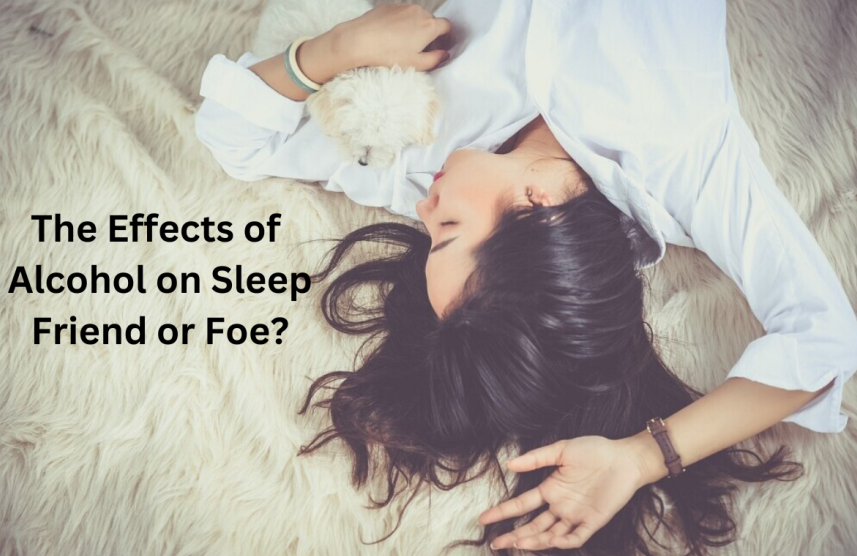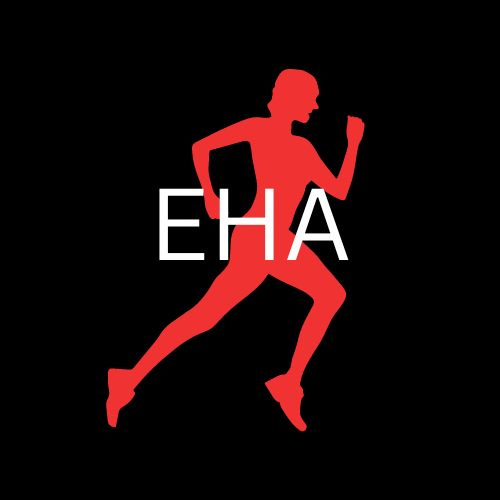
Curious about the effects of alcohol on sleep? There are plenty of myths about how a nightcap influences your rest. Sure, that drink might help you fall asleep faster—but is it actually doing more harm than good in the long run?
Have you ever noticed feeling drowsy after a few drinks, only to wake up wide awake in the middle of the night? That’s alcohol playing tricks on your brain and body. When you drink, your body goes through several stages that affect your sleep differently. Let’s break down exactly what’s happening.
Table of Contents
The Effects of Alcohol on Sleep: How Alcohol Affects You
Alcohol impacts your brain chemistry in several ways, primarily by influencing neurotransmitters—the messengers that control how your brain functions. When you drink, alcohol increases GABA, a neurotransmitter that promotes relaxation and sleepiness. At the same time, it decreases glutamate, which normally keeps you alert. This combination is why alcohol often makes it easier to fall asleep initially.
However, this is only part of the story. After the initial sedative effect wears off, your body begins to metabolize the alcohol, causing a shift known as the biphasic effect. Early in the night, you may feel relaxed and drowsy, but as alcohol breaks down, sleep becomes more fragmented with frequent awakenings and disruptions.
Alcohol also significantly alters your sleep cycles, especially REM (Rapid Eye Movement) sleep. REM sleep is the stage when dreaming occurs and is essential for memory consolidation, emotional health, and cognitive function. Unfortunately, drinking alcohol reduces the amount of REM sleep you get, which means that despite falling asleep quickly, your brain misses out on crucial restorative processes.
The timing of alcohol’s effects on sleep stages matters, too. Early in the night, alcohol may help you enter deep sleep faster. But as it metabolizes, you’ll likely wake up more often, leading to restless, fragmented sleep. This pattern often results in feeling groggy and unrefreshed the next morning.
Understanding these complex effects of alcohol on sleep can help you make smarter choices about drinking—especially if you want to enjoy alcohol without sacrificing quality rest.
Short-Term Effects of Alcohol on Sleep: What Happens Overnight
When alcohol enters your system, its impact on sleep doesn’t stop once you fall asleep. Instead, it continues to interfere with your rest throughout the night. While alcohol may help you fall asleep faster, it does not guarantee the restful sleep your body needs.
One of the biggest short-term effects of alcohol on sleep is its disruption of REM sleep—the stage associated with vivid dreams and critical brain functions like memory consolidation and emotional processing. After drinking, your REM sleep becomes shorter and less intense, which can leave you waking up feeling like you haven’t slept at all. This phase is vital for your brain’s nightly “clean-up” and organization, and without enough REM, cognitive function can suffer.
You might also notice frequent nighttime awakenings—often caused by alcohol’s diuretic effect. Alcohol increases urine production, leading to dehydration and repeated bathroom trips that break your sleep cycle and reduce overall sleep quality.
For those with sleep apnea or other breathing-related sleep disorders, alcohol can make symptoms worse. It relaxes the muscles in your throat, narrowing the airway and increasing the chances of snoring and apnea episodes. Even moderate drinking can turn mild symptoms into significant sleep disturbances.
All of these factors contribute to a restless night with more awakenings and reduced deep sleep stages. Since deep sleep is essential for physical recovery and immune function, its loss means you’ll likely wake up tired, groggy, and unrefreshed—no matter how many hours you spent in bed.
Long-Term Consequences of Regular Alcohol Consumption on Sleep
Regular alcohol consumption doesn’t just disrupt your sleep for one night—it can have serious long-term consequences that turn into a chronic problem. One of the most common issues is chronic insomnia. What may start as occasional restless nights can quickly escalate into persistent difficulty falling and staying asleep. This goes beyond simple tiredness, impacting your overall health and well-being.
Over time, long-term alcohol use increases the risk of more severe sleep disorders. Your body may build a tolerance, causing you to drink more just to fall asleep. Unfortunately, larger amounts of alcohol lead to greater disruptions. Conditions like sleep apnea can worsen, making symptoms harder to manage and increasing the risk of complications.
This creates a vicious cycle. Many people turn to alcohol as a quick fix for sleep problems, believing a nightcap will help. But relying on alcohol for sleep often backfires, leading to poorer sleep quality and increased daytime fatigue, which in turn makes you crave more alcohol to cope.
Chronic sleep disruption affects all aspects of life—your mood, energy, concentration, and decision-making. This can result in decreased productivity, irritability, and even increased reliance on caffeine or alcohol throughout the day, further worsening the cycle.
Understanding the long-term effects of alcohol on sleep can motivate healthier choices. If you find yourself depending on alcohol to fall asleep, it may be time to rethink your nighttime routine. Your body and mind will thank you with better rest and improved overall health.
Lesser-Known Factors: How Alcohol Interacts with Other Substances to Affect Sleep
Alcohol rarely acts alone when it comes to disrupting your sleep. It often interacts with other substances, compounding its negative effects on your rest.
One common culprit is caffeine. While caffeine is a stimulant that keeps you awake, alcohol initially makes you drowsy but later fragments your sleep cycle. Mixing the two sends mixed signals to your body, often resulting in a restless night filled with tossing and turning.
Prescription and over-the-counter medications can also influence how alcohol affects your sleep. Some medications may amplify alcohol’s sedative effects, leaving you groggier or overly sedated. Others might interact negatively, increasing sleep disturbances or even posing risks such as respiratory depression.
Your diet plays an important role, too. Eating heavy or fatty meals while drinking can strain your digestive system, making it harder to fall and stay asleep. On the other hand, consuming lighter, nutrient-rich foods might help reduce alcohol’s disruptive impact on your sleep.
Don’t overlook hydration—alcohol is a diuretic that dehydrates your body, and insufficient water intake can worsen nighttime awakenings and morning grogginess. Staying well-hydrated can help minimize frequent bathroom trips and reduce the dreaded “morning fog.”
My wife and I also started using Voli Wellness to stay properly hydrated—especially on nights when we had a drink. Their Paradise Passionfruit blend quickly became our go-to. It’s not only delicious, but it also helps replenish electrolytes and support recovery.
Since incorporating Voli into our evening routine, we’ve noticed fewer wakeups during the night and a more refreshed feeling in the morning. It’s a small habit that’s made a big difference in how we sleep.
By understanding these lesser-known factors and how alcohol interacts with other substances, you can make smarter choices to protect your sleep quality. Mindfulness about what you consume alongside alcohol can lead to better rest and overall well-being.
My Personal Attestation: How Alcohol Impacted Our Sleep, According to Garmin
My wife and I have been wearing Garmin smartwatches for years, specifically the Garmin Venu 3, which tracks sleep every night and provides a “Sleep Score” based on the quality of your rest.
It’s pretty remarkable that a watch can measure how well—or how poorly—you slept the night before. Over time, we noticed a clear pattern: on nights when we had a few drinks, our Sleep Scores dropped noticeably.
We decided to put this to the test for several months, tracking our sleep alongside our drinking habits. I can say with 100% certainty that alcohol significantly affects sleep quality.
If you want to learn more about the Garmin Venu 3 and how it tracks sleep, check out this detailed review: Garmin Venu 3 Review
Strategies for Mitigating Alcohol’s Negative Impact on Sleep
Balancing the enjoyment of alcohol with quality rest might seem challenging, but it’s possible by adopting a few smart strategies.
Moderation is key. Reducing both the amount and frequency of alcohol consumption can significantly improve your sleep quality.
Timing your drinks wisely also makes a difference. Aim to have your last alcoholic beverage at least 3 to 4 hours before bedtime. This allows your body enough time to metabolize the alcohol, minimizing sleep disruptions during the night.
Incorporating alcohol-free days into your weekly routine is another effective approach. These dry days help reset your natural sleep patterns and give your body a chance to recover from alcohol’s effects. Think of it as a mini detox for better, more restorative sleep.
By applying these strategies, you can enjoy your drinks responsibly without sacrificing the quality of your rest.

Another great resource for improving sleep quality and learning more about healthy sleep habits can be found here: 10 Tips to Better Sleep
Better Sleep Starts Tonight: Simple Habits That Make a Big Difference
Developing a healthy nighttime routine can go a long way in improving your sleep—without relying on alcohol. Engage in activities that promote relaxation, such as reading a book, doing some light stretching, or listening to calming music. These simple habits serve as effective alternatives to a nightcap and help signal to your body that it’s time to wind down.
Hydration also matters. Drinking water throughout the evening helps counteract alcohol’s dehydrating effects and may reduce those frequent overnight wakeups for bathroom trips.
And most importantly, listen to your body. If you notice that even moderate drinking is affecting your sleep, don’t ignore it. Speak with a healthcare professional—there may be an underlying issue at play, and getting the right guidance can make a lasting impact on both your sleep and overall well-being.
Thanks for reading, we look forward to your visit at EliteHealthAffiliates.com – Your Health and Wealth Authority!


